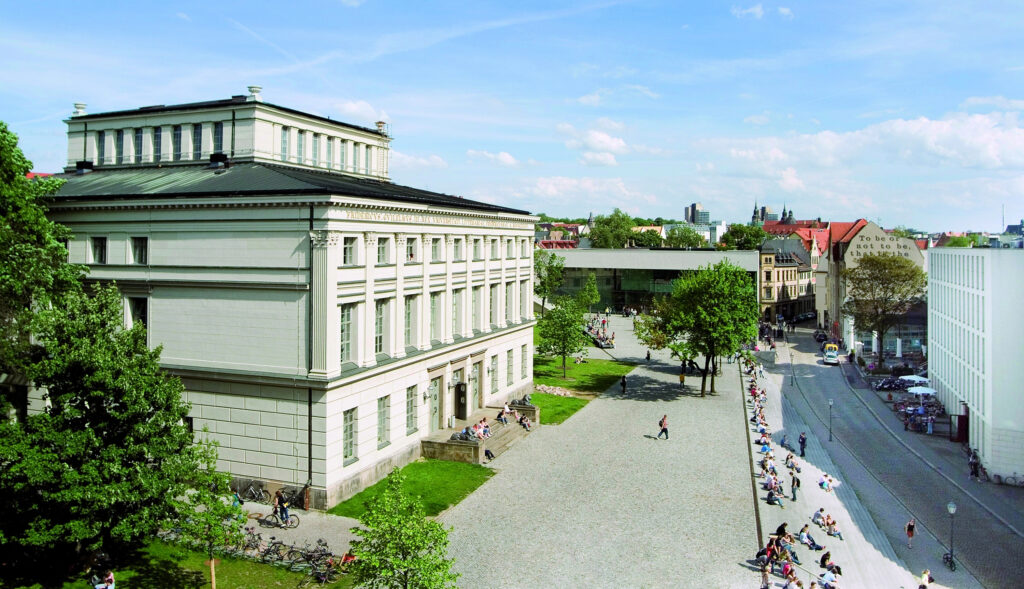The Martin Luther University Halle-Wittenberg, the largest and oldest university in Saxony-Anhalt, was founded in 1817 from the merger of the University of Wittenberg, founded in 1502, and the Friedrich University of Halle, founded in 1694. Today it has around 20,000 students and 340 professors.

MLU’s scientific profile is characterised by the humanities focus areas “Enlightenment-Religion-Knowledge” and “Society and Culture in Motion. Diffusion – Experiment – Institution” as well as by the natural science foci “Material Sciences – Nanostructured Materials” and “Biosciences – Macromolecular Structures and Biological Information Processing”.
Agricultural sciences also play a special role, for which the University of Halle has sole responsibility for profiling in Saxony-Anhalt. In the field of medicine, the focus is on epidemiology, nursing research and research into signal transmission. Here, nursing scientists research and teach on an equal footing with doctors. The Dorothea Erxleben Learning Centre is one of the largest learning clinics for future doctors. Outside of its main focus areas, the university brings together a large number of small subjects, some of which are unique in Germany.

The Centre for Teacher Education coordinates teacher training as a faculty-independent central institution of the Martin Luther University Halle-Wittenberg. It is the contact point for all student teachers. The BMBF project Digital kompetent im Lehramt (DikoLa) is also located at the centre.
It is aimed at all students and teachers in teacher training at Martin Luther University. The central aim is to prepare teachers for teaching in a digitally shaped world by demanding and promoting the acquisition of the necessary analytical, reflective and practice-oriented competences. This takes place with the use of digital means and methods.
